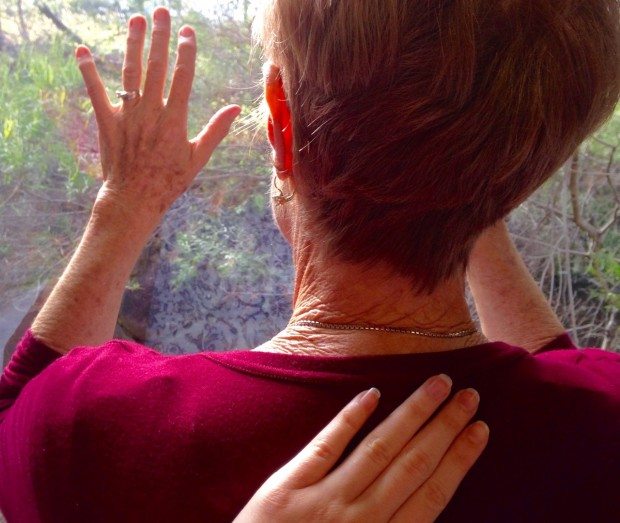The quality of mercy is not strain’d,
It droppeth as the gentle rain from heaven
Upon the place beneath.
[Shakespeare, The Merchant Of Venice]
I love these words. They speak to me of the constancy of God’s Love.
There is a constancy of God’s Love to which we all have access throughout our lives, a constancy we can choose to express to and with each other on a daily basis.
Through my observations I cannot help but wonder: why do we as a society consistently avoid choosing to express this constancy of love in taking care of our elderly and those in Aged Care facilities?
Speaking regularly with friends who work in Aged Care facilities I find what they share with me deeply disturbing. Although they work in a number of facilities across Australian states, they consistently speak of the same issues:
- Carers working under inordinate time pressures and having to rush breathlessly from patient to patient, without time for a genuinely caring verbal interaction.
- Limited time allocation with each patient in their care so that physical ministrations end up rushed and disregarding of the physical contact taking place.
- Paperwork being complex and onerous and taking valued time away from patient care.
- Carers receiving a low award wage, many without the security of a permanent position. This leads to the carers often devaluing themselves with the net result of low professional and personal self worth and self esteem, with little or no self care taking.
- Frustration with not being able to offer fully the quality of care they can see is needed for their patients.
- ‘End of shift’ exhaustion and, at times, demoralization due to a sense of having accomplished little and not done ‘enough’.
How can a carer truly care for others without self-care and under the conditions outlined here?
Most of our elderly have contributed productively to our society in their working life. As they age, their bodies slow down and become fragile and easily hurt. Working in research for the Department of Geriatric Medicine at a teaching hospital in England, I observed how older people are often worried and afraid about the approach of death and the loss of their loved ones. They are witnessing the passing over of all of their friends. Everything about this life is ending for them.
What do we offer our elderly as they navigate their way through the final phase of life? Is it respectful to offer a perfunctory and rushed quality of care that only maintains their deteriorating bodily functions, executed by stressed fellow human beings under incredible workloads and time pressures?
Is this lack of true care what any of us would wish for ourselves or for our immediate family members? Would we want that for our children when they reach this final stage of life?
What type and quality of care would we, as a collective, like to see for our elderly?
Is it not natural for us to want to offer the following:
- Compassion — understanding with an open heart what is going on for our elderly and allocating the time to allow them to express this clearly, in their own words.
- Gentleness – bathing them and ministering to their physical needs with a tenderness of touch that honours their fragility.
- Dignity and Respect — honouring the life they have lived and offering them support and a respectful autonomy as they make their final choices in this life.
This level of care rarely occurs in our Aged Care facilities for the reasons outlined above and also possibly because of our collective attitudes, fears and beliefs about Ageing and Death.
Is it possible that we may have been quite simply ‘too busy’… and that ‘too busy’ has meant that we may not have taken the time to stop and look deeply into the eyes of a fellow human being, to look past the wrinkles, the lines and the deterioration of the physical body and to deeply connect with this person who has shared a life with us, a life that is now waning?
If we stop however and ponder on the needs of our elderly, we would readily understand that we all want compassion, gentleness, dignity and respect throughout our lives and especially as we age and our bodies wind down to pass on.
Would we not all feel that what is required is a new perspective on Aged Care? After all, do we not all want a loving connection with our fellow human beings?
As we age, do we not all truly want the constancy of God’s Love, which is always available for us to express to each other – through a gentle touch, an open smile, a caring look and the time to share our feelings? Is it not our collective responsibility to speak up about this and let our true feelings be known? Would not our systems then need to re-mould themselves to accommodate our communally articulated expectations on what we consider to be a true and new perspective on aged care?
I feel it is time for the quality of mercy to be determined by us all because ‘the quality of mercy’ lives within us all.
Inspired by the work of Serge Benhayon and Universal Medicine.
By Coleen
Further Reading:
Palliative Care Nurse Elizabeth Dolan wins the NSW Health Excellence Award
Death & Dying – A Taboo Topic or a Joyful, Normal Conversation?





